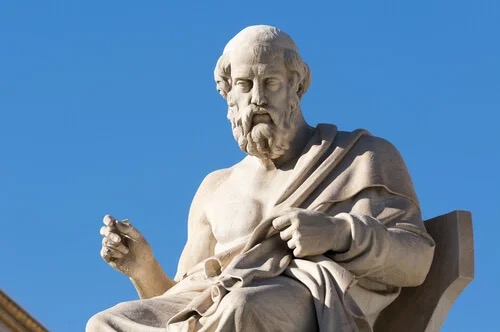(Exploring Your Mind) These sayings from some of the Greek philosophers date from the period between the years 6BC and 149BC. This era corresponds to what we know as Classical Greece. In this era, their philosophy was particularly outstanding. In fact, their thinking affected how our own culture developed.
Related The Critical Text of the Q-Gospels: The Original Sayings of Jesus (Part 2)
by Staff Writer, May 28th, 2021
The most famous thinkers of this era were Socrates, Plato, and Aristotle. Although they weren’t the only ones, they were the most quoted. For this reason, the sayings we recognize today tend to come from them.
Classical Greece was a wonderful era. In fact, we still talk about the eight Greek pillars of wisdom. Furthermore, our political system of democracy is rooted in the Peloponnese peninsula. Let’s take a step back in time with these seven wonderful quotes from some of these Greek philosophers.

Committing an injustice
Socrates is considered one of the fathers of philosophy. In fact, what we know about him has come, essentially, through Plato. Thanks to Plato’s writings, we now know much of Socrates’ thinking. It seems that he was particularly interested in political organization.
He said that “Suffering an injustice is better than committing one”. This essentially means that what you do defines who you are. On the other hand, what others do to you doesn’t have to have the same effect.
Happiness
Several phrases from the Greek philosophers concern happiness because it’s everyone’s goal. In this regard, one of Pericles’ statements states that “Happiness is in freedom and freedom in courage”.
This signifies that happiness is possible within the framework of freedom. However, sometimes, your freedom is threatened and you need to be courageous. Therefore, this saying implies that happiness is reserved for the brave.
Plato, one of the Greek philosophers
Love, as we know it today, doesn’t figure much in the thoughts of the Greek philosophers. Perhaps the closest to it is the idea of platonic love, devised by Plato. It refers to a world of ideas, a world that’s both perfect and unattainable. Plato said, “There is no man so cowardly whom love does not make brave and transform into a hero“. It’s an idealistic assertion. However, it’s based on a certain logic. Love is an extremely powerful force that serves as motivation for great undertakings, conquests, and achievements.
Poverty and wealth
This is a saying that’s been paraphrased in a multitude of ways. It’s also from Plato. He said, “Poverty doesn’t come because of the decrease of wealth but because of the increase of desires”.
Here, Plato references Eastern philosophy. In this way of thinking, desire is a source of suffering. Hence, an absence of desire means freedom and fulfillment. Therefore, if you can renounce desire, you’ll have a greater degree of freedom and fewer frustrations. In fact, this saying refers to your control over your relationship with the world.
Deception and responsibility
This saying from Anaxagoras is still repeated today. He said, “If you cheat on me once, you’re to blame. If you cheat on me twice, it’s my fault”. Simply put, this means that you learn from your mistakes.
Generally, Greek thought devoted a lot of attention to moral responsibility. Not just our own responsibilities, but our responsibilities as citizens. For this reason, Greek mythology contains many stories in which those who commit wrongdoings are punished for eternity. Similarly, those who try to flaunt the rules or are ignorant of them are guaranteed to suffer a miserable fate.

Aristotle, one of the Greek philosophers on fear
We couldn’t miss out on Aristotle in this collection of Greek philosophers. One of his most outstanding statements was “Fear is a suffering that produces the expectation of an evil”.
It’s interesting that he defines fear as an expectation and not a fact. Indeed, it’s true that, in reality, you aren’t afraid of what’s in the here and now but of what you imagine might happen. Therefore, fear doesn’t feed on action but on expectation.
Sophocles, one of the Greek philosophers on endurance
Sophocles wrote a number of the great Greek tragedies. This saying is as relevant today as it was when he wrote it, almost 26 centuries ago. He said, “The rewards of virtue alone abide secure”.
If you think of everything in your life that’s lasted, you’ll probably agree with Sophocles. Because something that you’ve achieved on your own merit tends to be far more enduring than something that might happen to you merely by chance that requires no effort at all on your part.
These sayings are just a small sample from some of the great Greek philosophers. They’re surprisingly astute. Even more so, when you consider that the only technology they possessed was that of their own thoughts and minds. Nevertheless, they still managed to come to some amazing conclusions.
Stillness in the Storm Editor: Why did we post this?
The news is important to all people because it is where we come to know new things about the world, which leads to the development of more life goals that lead to life wisdom. The news also serves as a social connection tool, as we tend to relate to those who know about and believe the things we do. With the power of an open truth-seeking mind in hand, the individual can grow wise and the collective can prosper.
– Justin
Not sure how to make sense of this? Want to learn how to discern like a pro? Read this essential guide to discernment, analysis of claims, and understanding the truth in a world of deception: 4 Key Steps of Discernment – Advanced Truth-Seeking Tools.
Stillness in the Storm Editor’s note: Did you find a spelling error or grammatical mistake? Send an email to corrections@stillnessinthestorm.com, with the error and suggested correction, along with the headline and url. Do you think this article needs an update? Or do you just have some feedback? Send us an email at sitsshow@gmail.com. Thank you for reading.
Source:
https://exploringyourmind.com/greek-philosophers-and-seven-of-their-sayings/
DIRECT DONATION
Support our work! (Avoid Big Tech PayPal and Patreon)


Leave a Reply